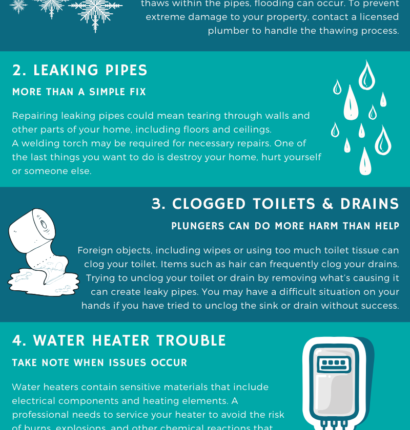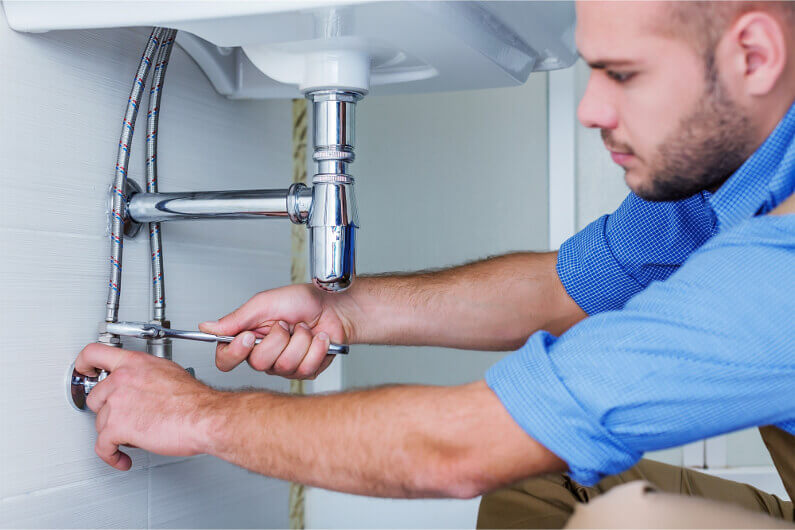All Categories
Featured
Table of Contents

[/image][=video]
[/video]
Before you rush to call a plumbing technician or make some poor Do it yourself option, you could desire to take an appearance at these pipes secrets that can save you time and cash. It is essential to know where you water shut down valve remains in your home, as this can save you from even more severe damage when plumbing issues occur.
When whatever is turned off, take a look at your water meter. An ongoing activity on your water meter when all water resources are turned off is a clear red flag that needs prompt attention.
Nevertheless, slow-moving drains are typically an early warning indication of a bigger concern. It can indicate an obstruction planned, a trouble with your drain line, or even tree roots penetrating your pipelines. As opposed to awaiting the drain to come to be completely blocked, act as soon as you see a stagnation.

If these don't work, it might be time to contact a specialist. Ignoring the concern might lead to much more significant and pricey troubles down the line. Understanding where your main water shutoff valve is can conserve you from prospective water damage in case of a significant leakage or plumbing disaster.
Is Diy Plumbing Safe?
Guarantee every household adult understands where the shutoff valve is and just how to utilize it. In case of a serious leak, promptly switching off your home's supply of water can minimize damage and provide you satisfaction while you wait for a plumbing professional to arrive. It's a prominent concept that chemical drainpipe cleaners are the best option for clogged drains pipes an idea that couldn't be additionally from the reality.
The chemicals can rust the internal cellular lining of the pipes, leading to damaged frameworks, leakages, and even pipeline ruptureds. They can permeate right into groundwater and infect it, posturing dangers to regional communities.
These devices can efficiently clear blockages without causing any type of damage to your pipelines. If these techniques do not work, do not hesitate to call a specialist. Bear in mind that avoidance is constantly far better than remedy. Stay clear of putting grease, oil, or any kind of solid waste down your drains, as they can strengthen and trigger blockages.

Nonetheless, over-tightening can result in numerous issues, including removed screws and broken bolts, leading to leakages and even water damages. This common mistake in DIY plumbing projects can transform a small repair service into an expensive undertaking. Rather, make every effort for a tight fit. The fitting need to be tight enough to stop leakages yet not so tight that it puts unnecessary stress and anxiety on the hardware.
Should I Do My Own Plumbing?
Plumbing's tape, or Teflon or thread seal tape, is an essential tool for every house owner. It creates water tight seals at pipe threads, preventing leaks at joints and connections.

Prior to attaching any type of installations, take a minute to wrap a couple of layers of plumbing's tape around the threads in a clockwise instructions. Make sure the tape covers all the strings and is wrapped securely. This straightforward yet critical step can save you from taking care of bothersome leaks down the line.
Bear in mind that for bigger issues, specialist aid is always recommended. To avoid this from happening, consider installing pipe insulation.
And also, during cooler months, pipeline insulation can help avoid your pipes from freezing and bursting a circumstance that can cause costly fixings. When it comes to securing fixtures like taps, several DIY lovers instinctively grab a plumbing technician's putty. There's an alternative that could offer you far better silicone caulk.
Should I Do My Own Plumbing?
This flexibility enables it to suit minor shifts or motions without damaging the seal, offering a much more durable and durable service. Simply bear in mind to allow the caulk remedy totally according to the producer's directions before exposing it to water to make sure the most effective results. "Doping" in plumbing describes using pipe dope, or pipeline joint substance, to the threads of plumbing links before they're screwed together.
Latest Posts
How Identity Protection Tools can Save You Time, Stress, and Money.
Plumber nearby
Plumbing near